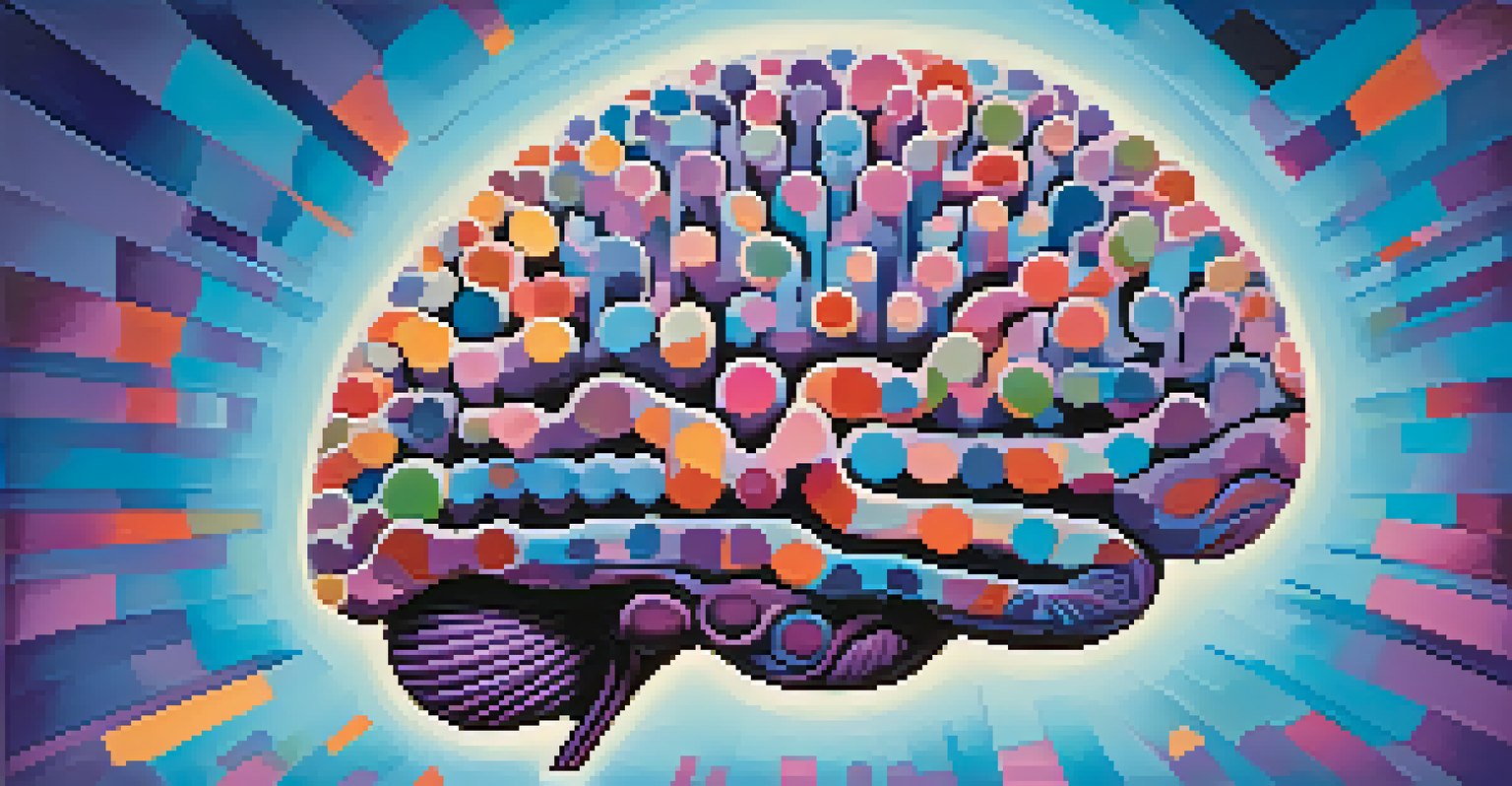Exploring Entheogens: Unlocking Cognitive Flexibility Benefits

What Are Entheogens and Their Historical Context?
Entheogens are substances that people use in spiritual or ritual contexts to enhance consciousness. Derived from the Greek words 'entheos' meaning 'full of the divine' and 'genes' meaning 'producing,' these substances have been used for centuries by various cultures. Indigenous tribes often incorporate them in their rituals to connect with the spiritual world, promoting healing and insights.
The mind is everything. What you think you become.
Historically, plants like peyote, psilocybin mushrooms, and ayahuasca have played pivotal roles in the spiritual practices of different societies. These substances can alter perception, leading to profound experiences that many describe as life-changing. This long-standing relationship between humans and entheogens sets the stage for exploring their cognitive benefits.
In modern times, there’s a renewed interest in entheogens, especially within the fields of psychology and neuroscience. Researchers are beginning to investigate how these substances might unlock cognitive flexibility, which is vital for problem-solving and creativity. Understanding this historical context helps us appreciate their potential benefits today.
Understanding Cognitive Flexibility: A Key to Creativity
Cognitive flexibility refers to the mental ability to switch between thinking about different concepts or to think about multiple concepts simultaneously. This skill is crucial for creativity, as it allows individuals to view problems from various angles and develop innovative solutions. Imagine it like being a skilled jazz musician who can improvise and adapt to the rhythm of a song.

When we engage in tasks that require cognitive flexibility, we often find ourselves making unique connections between seemingly unrelated ideas. This can lead to breakthroughs in both personal and professional contexts. For instance, a marketer might find an unexpected connection between consumer behavior and social trends through cognitive flexibility.
Entheogens Enhance Consciousness
Entheogens are substances that have historically been used in spiritual practices to promote healing and insights.
Research suggests that enhancing cognitive flexibility can lead to improved decision-making and adaptability in various situations, whether in work or daily life. By fostering this skill, individuals can navigate challenges more effectively, making it a desirable trait to cultivate. The next natural question is how entheogens might contribute to this enhancement.
How Entheogens Influence Brain Function and Connectivity
Studies have shown that entheogens can influence brain function by altering the neural pathways involved in cognition. These substances often increase connectivity between different regions of the brain, allowing for a more integrated approach to processing information. It's akin to finding new routes on a map that lead to unexplored territories.
Creativity is intelligence having fun.
For example, psilocybin, the active compound in magic mushrooms, has been found to promote communication between brain networks that don’t usually communicate. This can lead to enhanced creativity and problem-solving abilities, as individuals can draw on a wider range of experiences and ideas. The brain, in essence, becomes a more fluid space for generating thoughts.
Moreover, this increased connectivity can help break down rigid thought patterns that often hinder creative thinking. By facilitating a more open and flexible mindset, entheogens allow individuals to explore new possibilities. This makes them a fascinating area of study for those looking to improve cognitive flexibility.
The Role of Set and Setting in Entheogenic Experiences
The concept of 'set and setting' is crucial when discussing entheogens. 'Set' refers to the individual's mindset, including their beliefs and expectations, while 'setting' pertains to the physical and social environment in which the experience occurs. Together, they can significantly influence the outcomes of an entheogenic experience.
A positive mindset and a supportive environment can lead to more beneficial insights and creative breakthroughs, while a negative mindset or a chaotic setting can result in anxiety or confusion. Think of it as hosting a dinner party: the mood you create and the company you keep can make all the difference in the experience.
Cognitive Flexibility Boosts Creativity
Cognitive flexibility allows individuals to approach problems from various angles, enhancing creativity and problem-solving.
Researchers emphasize the importance of preparation and integration following an entheogenic experience, as these practices can enhance cognitive flexibility. By thoughtfully considering both set and setting, individuals can maximize the potential benefits of their experiences, leading to lasting changes in how they approach challenges.
Real-Life Examples: Artists and Innovators Using Entheogens
Many artists and innovators throughout history have credited entheogens with enhancing their creative processes. For instance, the renowned painter Salvador Dalí was known to experiment with various substances, which he claimed allowed him to tap into deeper layers of his imagination. His work reflects the kind of cognitive flexibility that often arises from such experiences.
In the tech world, figures like Steve Jobs have openly discussed their use of psychedelics, viewing these experiences as pivotal moments in their creative journeys. Jobs once described his experiences with LSD as one of the most important things he’s done in his life, highlighting how it influenced his innovative thinking at Apple.
These anecdotes point to a broader trend where individuals leverage entheogens to break free from conventional thought patterns. By exploring these substances, they often find themselves unlocking new levels of creativity and insight, showcasing the potential cognitive flexibility benefits that can arise.
The Science Behind Entheogens and Cognitive Flexibility
Recent studies have begun to explore the scientific mechanisms through which entheogens impact cognitive flexibility. Research indicates that these substances may stimulate neurogenesis, the process of forming new neurons, which can enhance brain plasticity. This plasticity is essential for adapting to new information and experiences.
One significant study found that participants who ingested psilocybin showed marked improvements in creativity and problem-solving tasks, demonstrating the potential entheogens have for enhancing cognitive capabilities. This aligns with the idea that by promoting a more flexible mindset, individuals can approach challenges with fresh perspectives.
Set and Setting Matter
The mindset and environment during entheogenic experiences significantly influence their outcomes and benefits.
As the scientific community continues to investigate these effects, the implications for mental health and cognitive enhancement become increasingly promising. Understanding the science behind these substances can help demystify their use and encourage responsible exploration of their benefits.
Responsible Use and Integration of Entheogens in Daily Life
While the potential benefits of entheogens for cognitive flexibility are exciting, responsible use is paramount. This includes understanding the legal implications, as many entheogens remain controlled substances in various regions. Educating oneself about the risks and benefits is essential before considering any use.
Integration practices, such as journaling or discussing experiences with a supportive community, can help individuals process their insights and apply them in their daily lives. Much like after a significant life event, reflecting on these experiences can lead to greater understanding and personal growth.

Ultimately, the goal is to harness the benefits of cognitive flexibility in a way that enriches life rather than complicates it. By approaching entheogens with respect and mindfulness, individuals can open doors to new insights and creativity, enhancing their overall well-being.